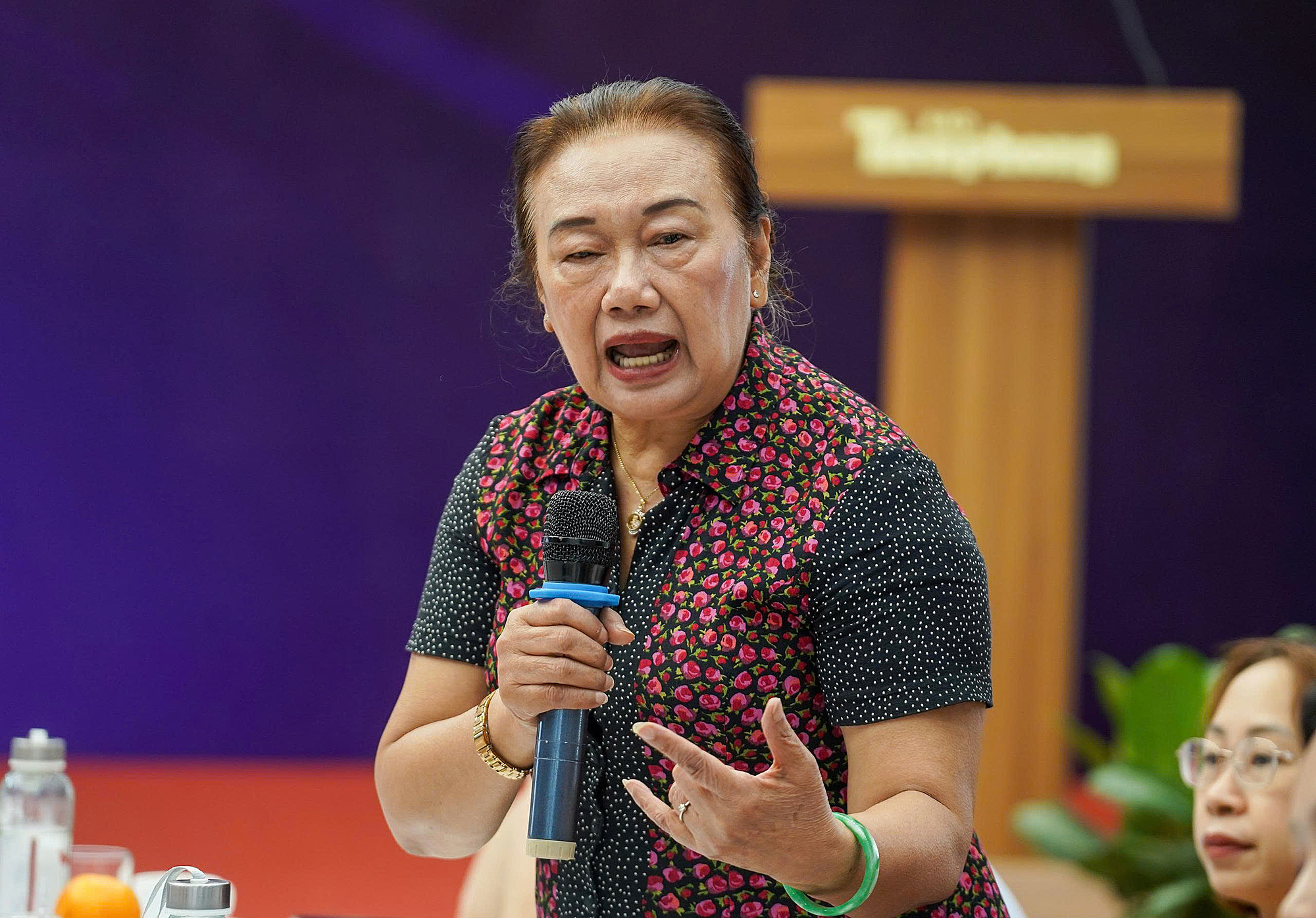At the "Household Businesses and New Tax Policies" seminar on 8/7, Nguyen Tien Minh, Deputy Director of Hanoi Tax Department, addressed concerns about retroactive tax collection among household businesses after using electronic invoices generated from cash registers.
"They worry that their revenue will increase significantly compared to the estimated amount, leading to retroactive tax collection," Minh said. However, he confirmed that the tax authorities will not implement such measures.
According to Minh, household businesses using the declaration method will file supplementary declarations if there are errors. For those paying estimated taxes, if their revenue increases by more than 50%, they will notify the tax authorities for adjustments for the remaining period of the tax year.
In cases of risk, tax authorities will cross-check data with payment and delivery intermediaries for appropriate handling.
 |
Nguyen Tien Minh, Deputy Director of Hanoi Tax Department, speaks at the seminar on 8/7. Photo: Tien Phong Newspaper |
Nguyen Tien Minh, Deputy Director of Hanoi Tax Department, speaks at the seminar on 8/7. Photo: Tien Phong Newspaper
Since 1/6, under Decree 70, household businesses with annual revenue exceeding 1 billion VND in certain sectors (food and beverage, hotels, retail, passenger transport, cosmetics, entertainment, etc.) must use electronic invoices generated from cash registers, with data connected to tax authorities. Resolution 68 of the Politburo also mandates the elimination of estimated taxes for household businesses by 2026.
Hanoi currently has 4,979 household businesses with revenue exceeding 1 billion VND, accounting for 1.5% of tax-managed households and 2.8% of estimated tax-paying households. The implementation of electronic invoices from cash registers has been ongoing since 2023. Since 1/6, an additional 9,155 households have registered to use them, with about half participating voluntarily, according to tax authorities.
Tax officials state that using electronic invoices from cash registers is a suitable solution, especially for those with access to technology. Providers offer various low-cost solutions with incentives, such as free usage for up to 6 months.
Besides concerns about retroactive tax collection, the Deputy Director noted that many household businesses are initially unclear about regulations regarding invoice adjustments, replacements, and cancellations.
Le Ngoc Son, a representative of Dong Xuan Market Management Board, mentioned that older merchants unfamiliar with technology face difficulties, while younger ones adapt more quickly.
Dong Xuan Market has around 2,100 regular household businesses. Son explained that the early June implementation of the new tax policy coincided with a period of heightened inspections for counterfeit goods, causing concern among some merchants. This led to some temporarily closing their shops, fearing market management inspections.
According to Son, the merchants' worries are not about counterfeit goods, as "they do not sell such items." Instead, they are concerned about the lack of input invoices due to long-standing trading practices without requiring full documentation.
He also highlighted the wholesale and seasonal nature of Dong Xuan Market. Some goods are only sold and restocked annually, making short-term declarations difficult. However, the tax authorities have been flexible, allowing declarations based on product codes, industry codes, and prices to accommodate traditional market practices.
Bui Thi Trang, Director of Accounting Services and Household Businesses at MISA Joint Stock Company, agreed, noting that many households still collect cash and keep records manually, making it difficult to distinguish between business and personal finances. To issue output invoices correctly, sellers need input invoices. This is a weakness for many household businesses, especially those with unsold inventory lacking valid invoices.
 |
Nguyen Thi Cuc, President of the Vietnam Tax Consultants' Association, speaks at the seminar on 8/7. Photo: Tien Phong Newspaper |
Nguyen Thi Cuc, President of the Vietnam Tax Consultants' Association, speaks at the seminar on 8/7. Photo: Tien Phong Newspaper
Regarding solutions, Nguyen Thi Cuc, President of the Vietnam Tax Consultants' Association, acknowledged the complexity of the tax system, especially for those new to technology or changing business models. She suggested further simplification of procedures, clear guidance, and improved technological infrastructure to support taxpayers.
For example, older individuals need special assistance with electronic invoices and online declarations.
From a regulatory perspective, Le Nguyen, Deputy Director of Hanoi Market Management Department, stated that they will guide and support household businesses in implementing the new regulations.
He emphasized that implementing the new tax and electronic invoice policies is a crucial step towards greater transparency and professionalism for household businesses in the long run. If businesses focus only on short-term gains, they risk violations and long-term market instability. By complying with the law, they can access support policies and credit, expanding production and enhancing competitiveness.
"The opportunity has arrived; the key is for household businesses to adapt. Regulatory agencies will always be there to provide timely support," he added.
Phuong Dung












